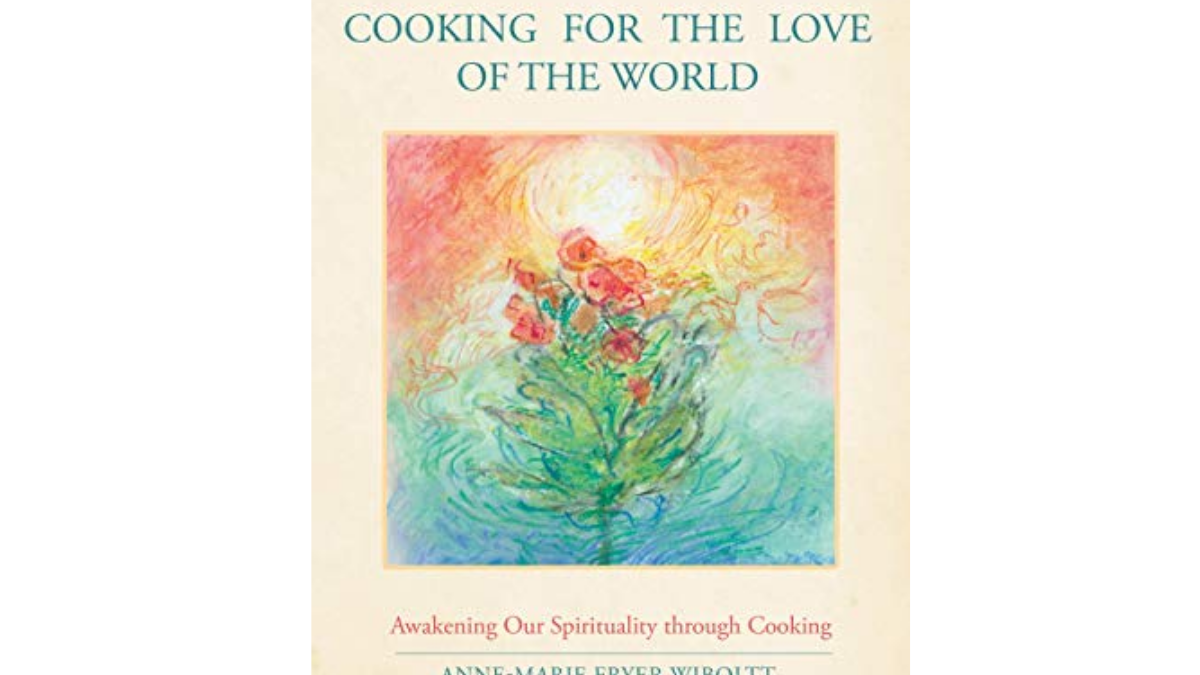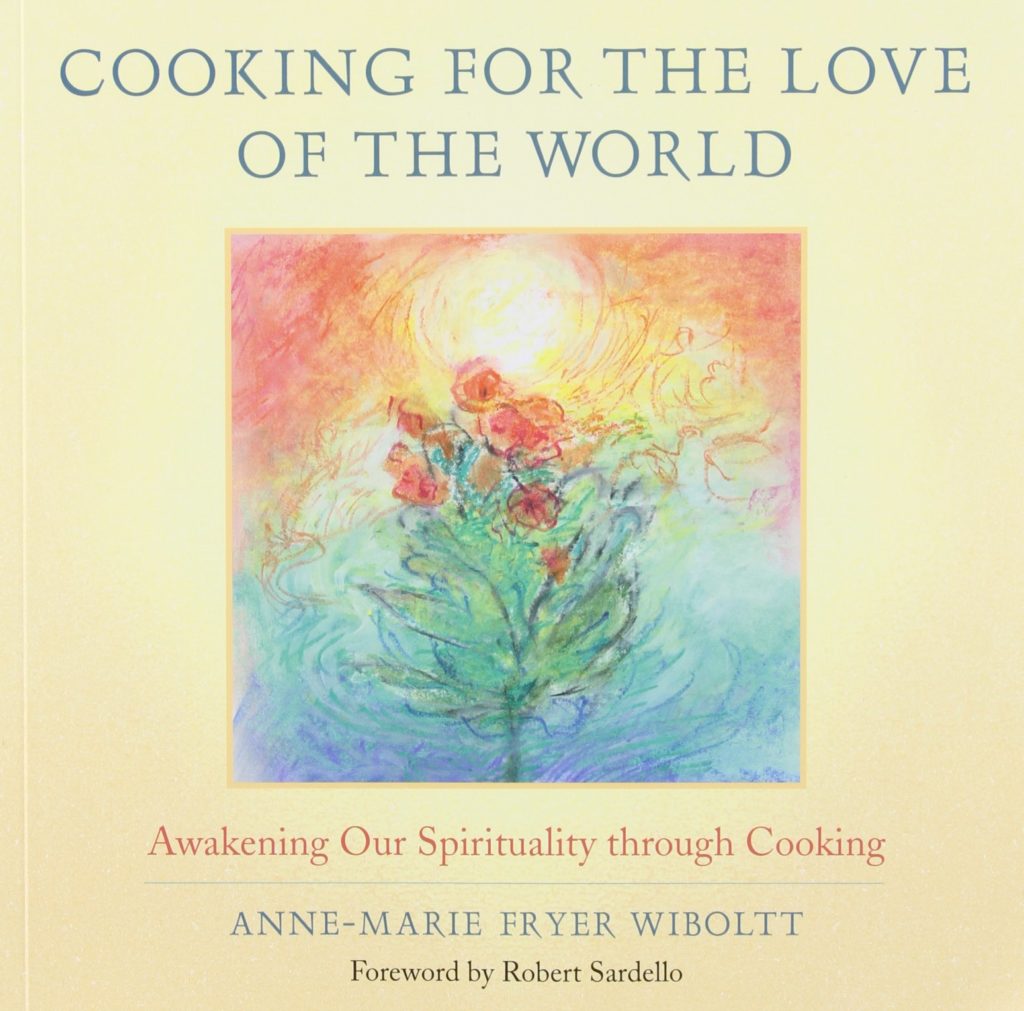There are many ways to win the heart of someone, but the best one might be through food. Cooking is a beautiful way to express your love and appreciation for another person. You don’t have to have the most expensive ingredients in the world to make something delicious for your loved one. A simple meal with plenty of enthusiasm will do the trick. And it doesn’t matter if it’s a meal for two or one, the act of cooking with love is the most important thing.
A cookbook is handy for cooking if you don’t know how to cook or if you want to attempt new types of recipes.
Cooking For The Love Of The World
Cooking for the Love of the Planet is a book that urges everyone to use the skill of cooking to establish a new, fresh, and intimate relationship with the world. Cooking as a living art, as depicted here, inspires awe for nature’s bounty in all of its beauty, polarities, and rhythms.
Cookery and eating are infused with highly reverent and spiritual consciousness by an internationally known biodynamic farmer, natural health counselor, and nutritional cooking teacher. Food is framed by grasping the earthly and cosmic forces that shape plant life, and excellent recipes turn nature into a culinary art form.
About The Author
“Anne-Marie Fryer Wiboltt” is a Waldorf kindergarten and primary school teacher, as well as a biodynamic farmer, author, and natural health consultant. She has twenty-five years of experience teaching nutritious cookery and counseling in Denmark, Europe, and the United States. Before adopting the anthroposophic approach to nutrition, food, and cooking, she trained as a macrobiotic cookery teacher and counselor. She studied the concepts of Eastern medicine and Dr. Weston A. Price’s research. Anne-Marie and her husband wrote a ten-book series on health and nutrition.
“Robert Sardello,” Ph.D., cofounded the School of Spiritual Psychology in 1992 with Cheryl Sanders-Sardello, Ph.D. He served as chair of the Department of Psychology, chairman of the Institute of Philosophic Studies, and graduate dean at the University of Dallas. He is also a co-founder and faculty member of the Dallas Institute of Humanities and Culture, the author of over 200 articles in scholarly journals and cultural periodicals, and a former faculty member of Missoula, Montana’s Chalice of Repose Project. Dr. Sardello is now an independent teacher and scholar, teaching all over the United States, Canada, and the United Kingdom, as well as the Czech Republic, the Philippines, and Australia, after developing spiritual psychology based on archetypal psychology, phenomenology, and Rudolf Steiner’s spiritual science over 35 years of research and holding positions in two universities. He serves as a consultant to several educational and cultural institutions and a dissertation adviser at several universities.
How Can Cookbooks Help You In Cooking?
A cookbook is a compilation of recipes, directions, and information about food preparation and serving. A cookbook is, at its best, a chronicle and treasury of the fine art of cooking, an art whose masterpieces—created solely for consumption—would otherwise be lost. The difficulty with learning via media (whether it’s a book, cookery shows, websites, YouTube videos, or anything else) is essentially one-way communication.
If you have a query, you won’t get an instant response, and there won’t be someone to offer you signals that you’re doing something wrong. Yes, trial and error can teach you a lot, but it also means you lack the cumulative intellect of even one person’s years of experience.
Some books are better than others in terms of providing information. Many “old classics” feature techniques as well as recipes, rather than merely being a list of recipes with some lovely stories about the author’s background and drawings of what the food would look like.
In conclusion, you can learn from a book, but it’s not ideal; your abilities will grow faster if you cook with someone who has the experience or watch instructional videos.
Do Cookbooks Help You Prepare Safe Food?
According to a study conducted by North Carolina State University experts, 99.7% of recipes in best-selling cookbooks do not address food-related dangers. Is this an issue?
- The study, published in the British Food Journal, looked at 1,749 recipes from 29 New York Times best-selling cookbooks that contained “raw animal ingredients.”
- The researchers looked at three things: if the recipe specifies that a dish is cooked to a specific internal temperature, whether the temperature provided is accurate, and whether any food-safety cooking misconceptions are promoted. Only 8% (123 recipes) mentioned the internal temperature.
- “In other words, relatively few recipes offered important food-safety information, and 34 of those 123 recipes provided readers with unsafe information,” says researcher Ben Chapman.
- The vagueness of guidelines, in their opinion, is also problematic – some recipes say “cook until done,” while others enforce a cooking time that can be subjective.
- Cooking time is notoriously unpredictable due to the numerous variables that can influence how long something takes to cook, the size of the item being cooked, how cold it was before going into the oven, and changes in cooking equipment.
- The researchers are correct in their assertion that providing erroneous temperatures or publishing food safety misconceptions is unethical; if a cookbook is willing to share this information, it should be factual.
Conclusion
This book is more than just a collection of delicious recipes. Reading it can also inspire and nurture your heart and mind, adding a fresh layer of thankfulness to the food we eat and the preparation process. The recipes are straightforward but filling.



